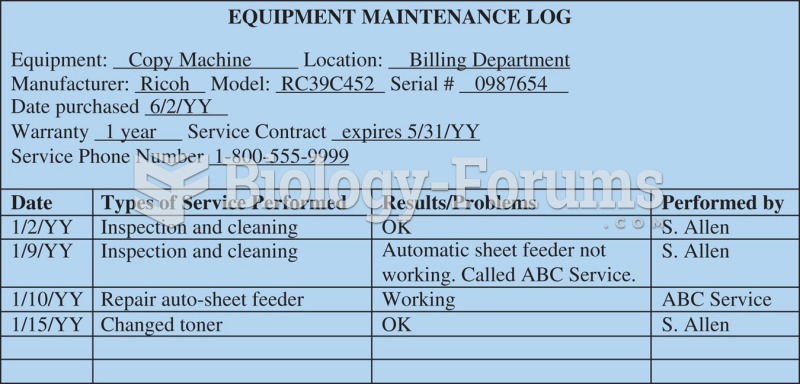|
|
|
Nearly 31 million adults in America have a total cholesterol level that is more than 240 mg per dL.
Everyone has one nostril that is larger than the other.
A seasonal flu vaccine is the best way to reduce the chances you will get seasonal influenza and spread it to others.
Asthma cases in Americans are about 75% higher today than they were in 1980.
Tobacco depletes the body of vitamins A, C, and E, which can result in any of the following: dry hair, dry skin, dry eyes, poor growth, night blindness, abscesses, insomnia, fatigue, reproductive system problems, sinusitis, pneumonia, frequent respiratory problems, skin disorders, weight loss, rickets, osteomalacia, nervousness, muscle spasms, leg cramps, extremity numbness, bone malformations, decayed teeth, difficulty in walking, irritability, restlessness, profuse sweating, increased uric acid (gout), joint damage, damaged red blood cells, destruction of nerves, infertility, miscarriage, and many types of cancer.
 Illustration showing how the primary breast tumor metastasized through the lymphatic and blood vesse
Illustration showing how the primary breast tumor metastasized through the lymphatic and blood vesse
 Both individuals and organizations do impression management, trying to communicate messages about ...
Both individuals and organizations do impression management, trying to communicate messages about ...





